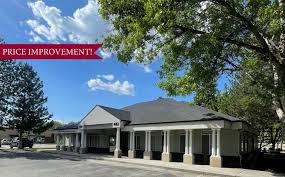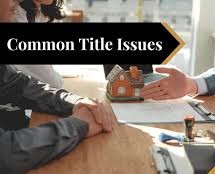By Kevin Dougherty, Broker, Reef Realty
When it comes to buying or selling a home, one of the most important decisions you’ll make is choosing the right real estate agent. The right professional can make the process smooth, protect you from costly mistakes, and ultimately deliver the best possible outcome. The wrong choice can do the opposite.
Most online lists of “questions to ask an agent” stop at the surface. They give you the questions but rarely explain why they matter—or how the answers reveal whether an agent is truly qualified to represent you.
Drawing on decades of experience in real estate, construction, valuation, and negotiation, I’ve created this list of ten essential questions—along with the reasons they matter and what you should listen for in an agent’s response.
1. What year were you licensed? Do you work full time?
Why it matters: Experience in real estate isn’t just about how long someone has held a license—it’s about whether they’ve been actively working in the field. A full-time agent who treats real estate as their profession, not a side job, is more likely to have seen a wide variety of situations and solved the problems that come with them. Research shows that true expertise requires thousands of hours of practice. An agent who has been working consistently for five or more years has had the time to build a strong foundation. On the other hand, part-time agents often don’t encounter enough transactions to build that same level of knowledge.
What to look for in the answer: A clear, confident response that demonstrates both years in the business and a full-time commitment.
2. How many transactions have you completed as the primary agent?
Why it matters: Transactions are where agents build real skill. Each sale involves negotiations, contracts, inspections, disclosures, and problem-solving. An agent who has closed at least 60 transactions (about one per month for five years) has been exposed to enough real-world scenarios to handle complications effectively. Less experienced agents may know the theory, but without practical experience, they may struggle when unexpected issues arise.
What to look for in the answer: A track record that shows consistency and depth, not just a single busy year.
3. Will you personally handle my listing, or will it be managed by your team?
Why it matters: Many agents with high sales volume delegate much of their work to assistants or junior team members. While there is nothing wrong with a team approach, it’s important to know who will actually be advising you, negotiating on your behalf, and handling sensitive parts of the process. If you are hiring an agent for their expertise, you should have confidence that you will be the direct beneficiary of it.
What to look for in the answer: Clarity on who will be your primary point of contact and who will handle day-to-day responsibilities.
4. What is your personal sale-to-original-list-price ratio?
Why it matters: This number measures how close an agent’s listings sell to the original asking price. It’s a strong indicator of how accurately they price properties. Some agents promise unrealistic listing prices to win clients. When the home doesn’t sell, they suggest multiple price reductions, blaming “the market.” Looking only at the final list price vs. the sale price hides this problem. But by asking about the original list price, you get a truer picture of how realistic the agent’s pricing is.
What to look for in the answer: A ratio that demonstrates consistent, accurate pricing and minimal reductions.
5. What can I expect from you in terms of communication? (frequency and method)
Why it matters: Real estate transactions involve many moving parts. Without clear communication, it’s easy to feel out of the loop. Establishing expectations up front—how often you’ll receive updates, and whether those will come by phone, text, or email—creates accountability. Written communication, particularly email, provides a valuable record. It protects both parties and allows you to reference past conversations if questions arise later.
What to look for in the answer: A willingness to adapt to your preferences, paired with a commitment to consistent and documented updates.
6. How do you determine the market value of a property?
Why it matters: Determining value is one of the most important—and most complex—tasks in real estate. An accurate valuation requires a deep understanding of the local market, property condition, floor plan, views, location, and other intangibles. Many agents rely on shortcuts like price-per-square-foot calculations or automated valuation models (Zillow, Redfin, etc.). While convenient, these tools fail to account for key variables. A skilled agent knows how to conduct a thorough comparative market analysis and can defend their valuation in negotiations.
What to look for in the answer: A detailed explanation of their process, not just “I run the comps.”
7. How long of a listing agreement are you proposing?
Why it matters: A six-month agreement is standard, but market conditions may justify a shorter commitment. The length of the agreement should give the agent enough time to market your property effectively, while also giving you an option to re-evaluate if expectations aren’t being met.
What to look for in the answer: A proposal that balances reasonable marketing time with flexibility for you as the client.
8. Do you follow up with prospective buyers after they tour my property?
Why it matters: If your home doesn’t sell quickly, you need to know why. Feedback from buyers is critical—it highlights both strengths and weaknesses of the property from the consumer’s perspective. Some issues, like condition or presentation, can be fixed. Others, such as location or noise, cannot. Without consistent follow-up, you lose the opportunity to gather this valuable feedback.
What to look for in the answer: A clear system for gathering and sharing feedback after every showing.
9. What services are included (and excluded) in your fee?
Why it matters: Misunderstandings about services can lead to conflict. Don’t assume that staging, professional photography, or certain marketing strategies are included—clarify upfront. Having it in writing sets expectations on both sides and allows you to fairly compare one agent’s offering to another’s. Choosing the right agent often saves far more money than a small difference in commission rates, so focus on value over cost.
What to look for in the answer: A detailed, written breakdown of services included in their representation.
10. Why should we hire you instead of another agent?
Why it matters: This is where you separate surface-level answers from real expertise. Many agents rely on statements like “I love real estate,” “It’s in my blood,” or “I do a lot of business.” While these may sound positive, they don’t necessarily translate into skill or value for you. Instead, look for agents who highlight their unique qualifications—whether it’s years of experience, deep knowledge of construction, negotiation expertise, or a proven track record in valuation and economics.
What to look for in the answer: Specific skills and experience that directly benefit you, not generic enthusiasm.
Final Thoughts
Hiring the right real estate agent is one of the most important decisions you’ll make when buying or selling a property. These 10 questions go beyond surface-level interviews and help you uncover the qualities that truly matter—experience, communication, accuracy, and commitment.
By understanding the reasoning behind each question, you’ll be prepared to identify an agent who will not only guide you through the process but also help you achieve the best possible outcome.












